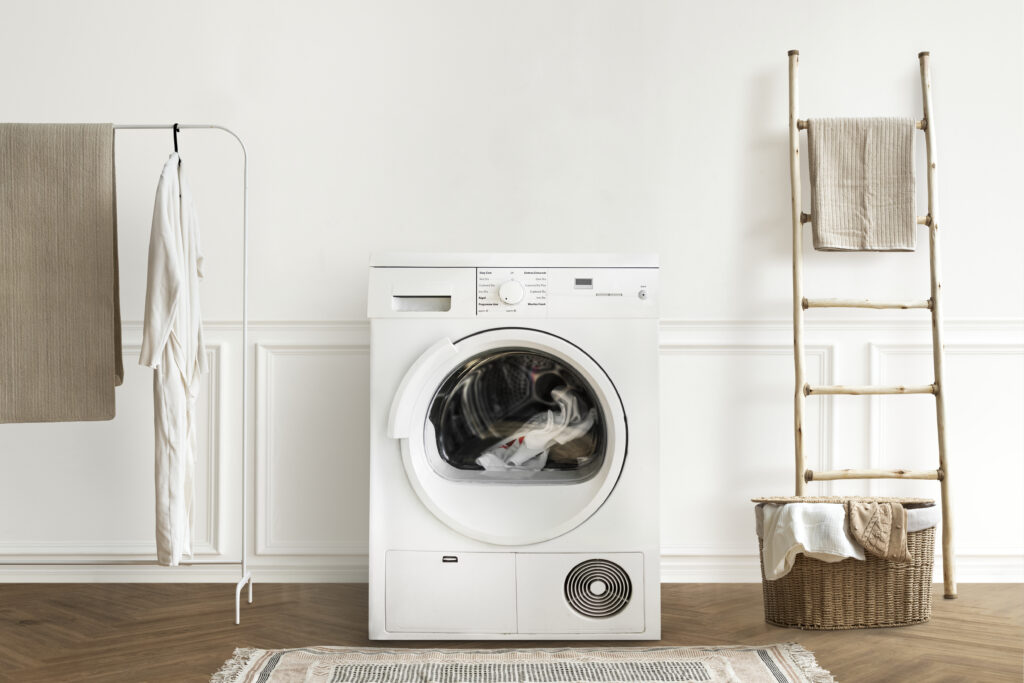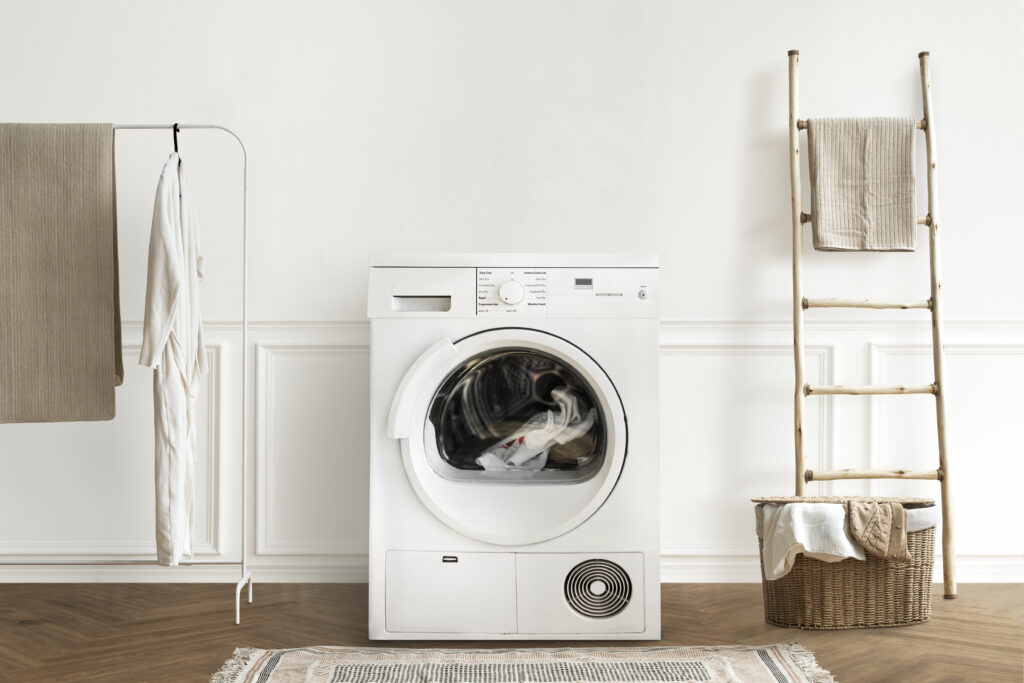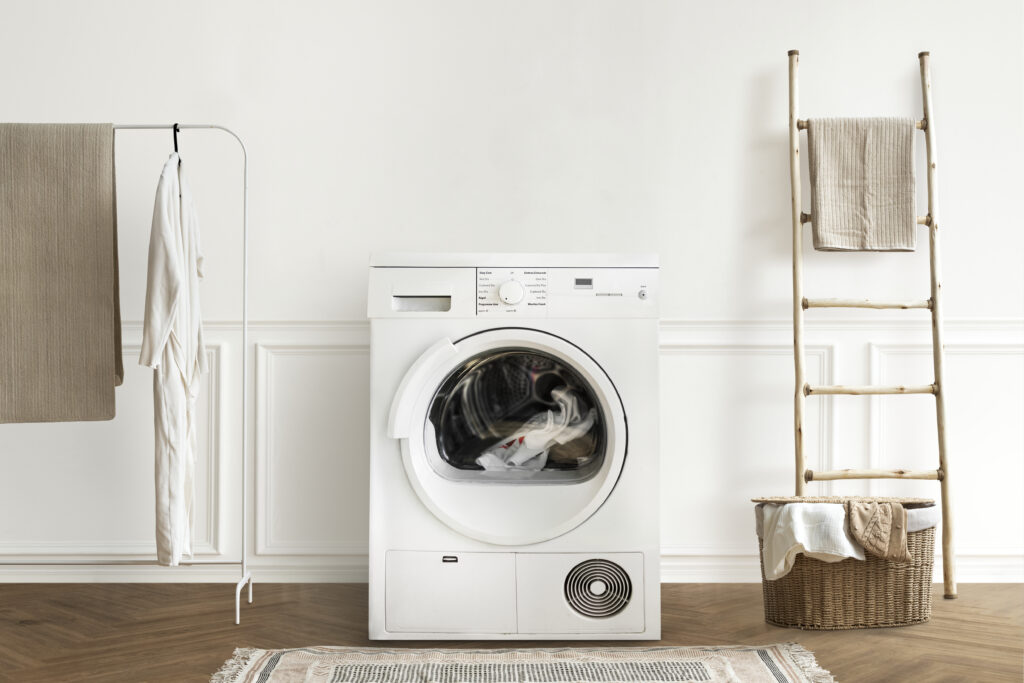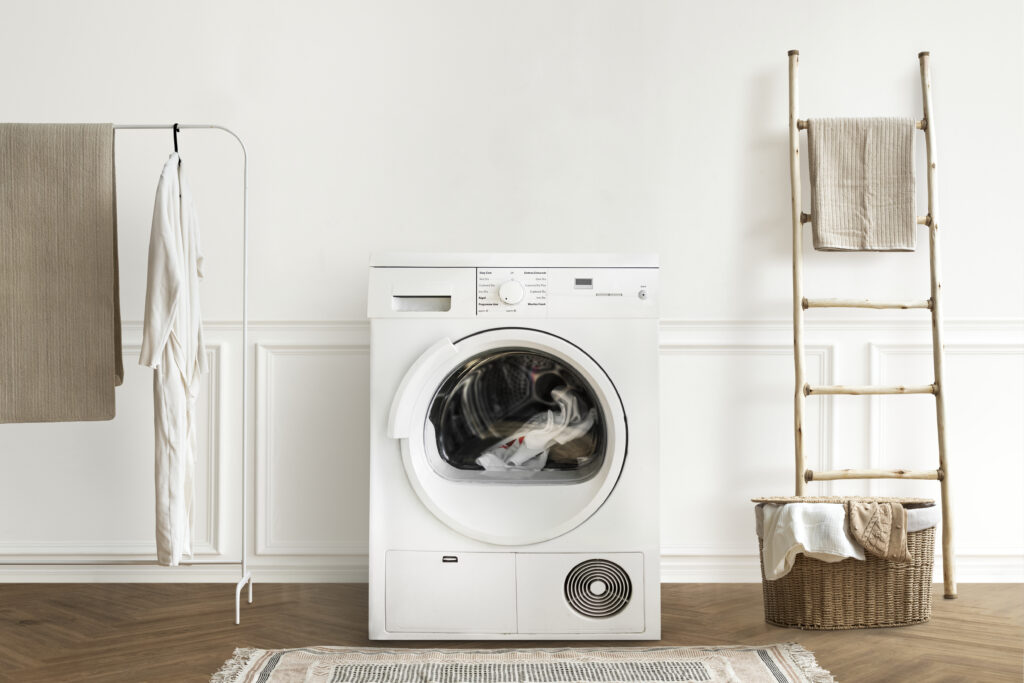Almost every aspect of our homes has changed in the last ten years due to technology, from voice-activated lights to smart refrigerators that can tell when milk is running low. This also applies to the laundry room. The emergence of smart washing machines with WiFi connectivity is one of the most significant innovations in recent years. More efficiency, control, and convenience than ever before are promised by these high-tech appliances. However, are they truly worth the money spent?
We’ll go over the definition of smart washing machines, their benefits and limitations, and whether it makes sense for American homes to upgrade by 2025 in this comprehensive guide.

A smart washing machine: what is it?
An advanced device with WiFi connectivity, a smart washing machine can be connected to your smartphone, tablet, or smart home hub through a mobile application. This allows users to troubleshoot problems, receive notifications, remotely control and monitor the washing machine, and even integrate with virtual assistants like Google Assistant or Amazon Alexa.
The majority of well-known companies, including LG, Samsung, Whirlpool, GE, and Maytag, now include smart washers in their premium product lines.
Important characteristics of intelligent washing machines
WiFi-enabled washing machines are appealing because of the following notable features:
1. Start and Stop Remotely
Using your smartphone, you can begin, pause, or end a laundry cycle from any location. Ideal for loading up while you’re on your way home from work or running errands.
2. Notifications of Cycles
Receive notifications on your phone when the laundry is finished or if there is a problem, such as an uneven load.
3. Wash Cycles That Can Be Customized
You can design and save personalized washing programs for particular clothing types, like delicates, baby clothes, or gym attire, with a lot of smart washers.
4. Monitoring of Water and Energy Use
Get efficiency reports over time and keep track of how much electricity and water your washer uses for each load.
5. Smart Home Integration
To enable your washer to interact with virtual assistants or other linked devices, connect it to your smart home ecosystem.
6. Dispensing Detergent Automatically
Depending on the load size and soil level, certain models, such as Whirlpool’s Load & GoTM, automatically dispense the appropriate amount of detergent.
7. Diagnostics and Troubleshooting
Before contacting a technician, use the app to get proactive maintenance alerts, explanations of error codes, and do-it-yourself troubleshooting advice.

Leading Brands of Smart Washing Machines in the United States (2025)
Here are a few of the most well-known and trustworthy smart washing machine brands that are currently offered in the US if you’re thinking about upgrading:
LG (series ThinQTM)
Samsung (integration with SmartThings)
Whirlpool (Load & Go models with WiFi)
GE (compatible with the SmartHQ app)
Maytag (models that are WiFi-ready)
Do Intelligent Washing Machines Make Sense? Benefits and Drawbacks
To determine whether a WiFi-connected washer makes sense for your home, let’s examine the benefits and drawbacks.
✔️ Advantages 1. Control and Convenience
For busy families or those with erratic work schedules, being able to operate your washer from any location is a huge time-saver.
- Efficiency in Energy Use
You can save water and energy by making better laundry decisions with the aid of real-time usage monitoring. - Alerts for Maintenance
When maintenance problems are detected early, costly repairs can be avoided later. - Tailored Cleaning Plans
Customize cycles to meet your unique requirements, safeguarding delicate textiles and enhancing cleaning efficiency. - Compatibility with Smart Homes
Adding a smart washer to your already-connected home ecosystem makes it even more seamless. - Technology Prepared for the Future
Purchasing connected appliances sets your home up for future integrations and upgrades as homes become smarter. - Cons: 1. Increased Initial Expense
- Generally speaking, smart washing machines are $200–$500 more expensive than conventional models with comparable capacities.
- Reliance on WiFi
Notifications and remote controls won’t function if your internet connection fails. - Possible Issues with Data Privacy
Smart washers gather and send data, just like any other connected device, which worries privacy-conscious customers. - Curve of Learning
Some users, particularly elderly family members, find it difficult to use the apps and smart features. - Complexity of Repair
If something goes wrong, more complicated systems may require specialized technicians or more expensive repairs.

In 2025, how much will smart washing machines cost?
Depending on the brand, capacity, and features, WiFi-enabled washing machines in the USA typically cost between $900 and $1,800. Generally speaking, high-end models with features like steam cleaning, automatic detergent dispensers, and smart home compatibility are more expensive.
Who Needs to Purchase a Smart Washing Machine?
An intelligent washing machine is perfect for:
Homeowners who are tech-savvy and enjoy connected appliances
Busy families balancing obligations at home, at work, and at school
Individuals who require laundry flexibility due to erratic schedules
Cycle notifications are useful for managing shared laundry rooms in households with several users.
Customers who care about the environment and wish to track and cut back on energy use
Who Could Not Require One?
The WiFi features may be skipped if:
You hardly ever use custom settings or additional cycle options.
You don’t have any other smart home appliances.
You’re trying to find an inexpensive appliance.
You favor conventional, straightforward controls over app-based ones.
Trends for the Future: What Can We Expect from Smart Laundry Appliances?
The market for smart appliances is expanding, and washing machines are no different. Anticipate seeing:
Better voice control and washing cycles driven by AI
Automatic detergent reordering when supplies run low
Optimizing washing times for off-peak electricity rates through integration with smart energy grids
More sophisticated self-maintenance and diagnostic tools

Conclusion:
Do Intelligent Washing Machines Make Sense?
Yes, smart washing machines with WiFi are well worth the investment for a lot of households.
A connected washer offers great advantages over conventional washers if you value time savings, energy efficiency, convenience, and compatibility with smart homes. The additional functionality, future-proof design, and possible energy savings can make it a wise long-term investment even though the initial cost is higher.
However, a dependable high-capacity conventional washer will still function well if your needs are straightforward and you have a limited budget.